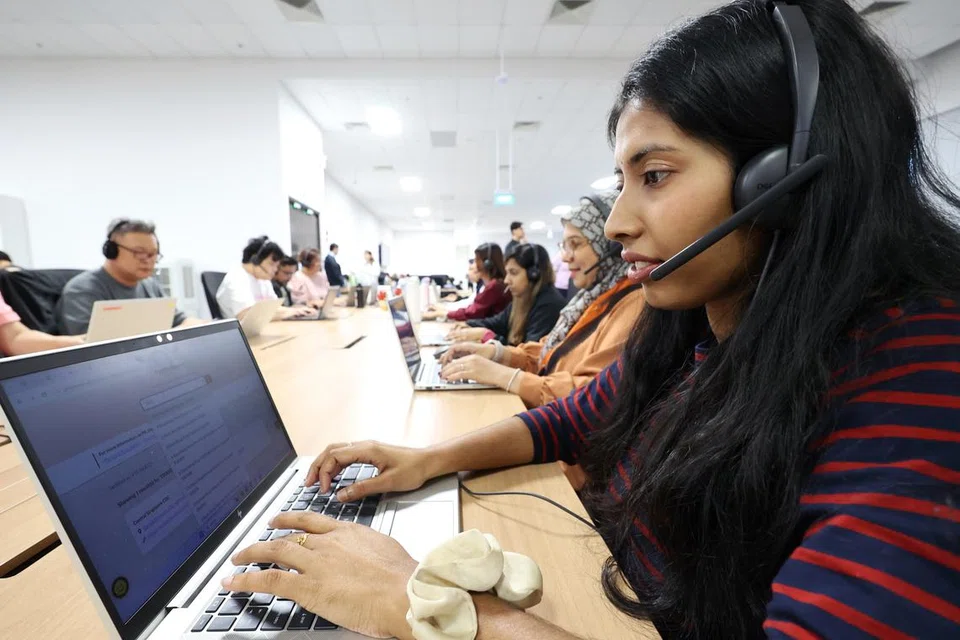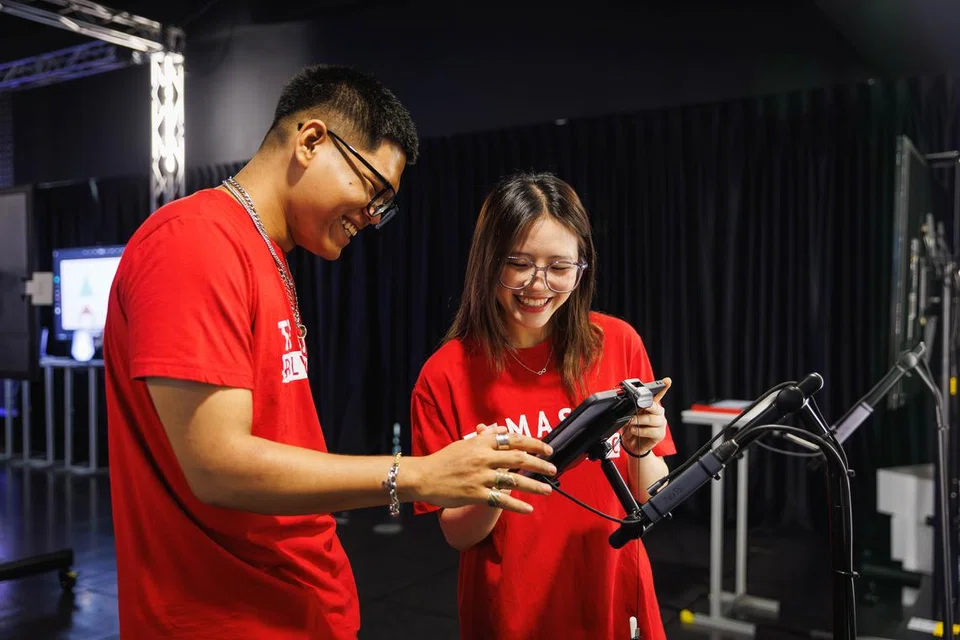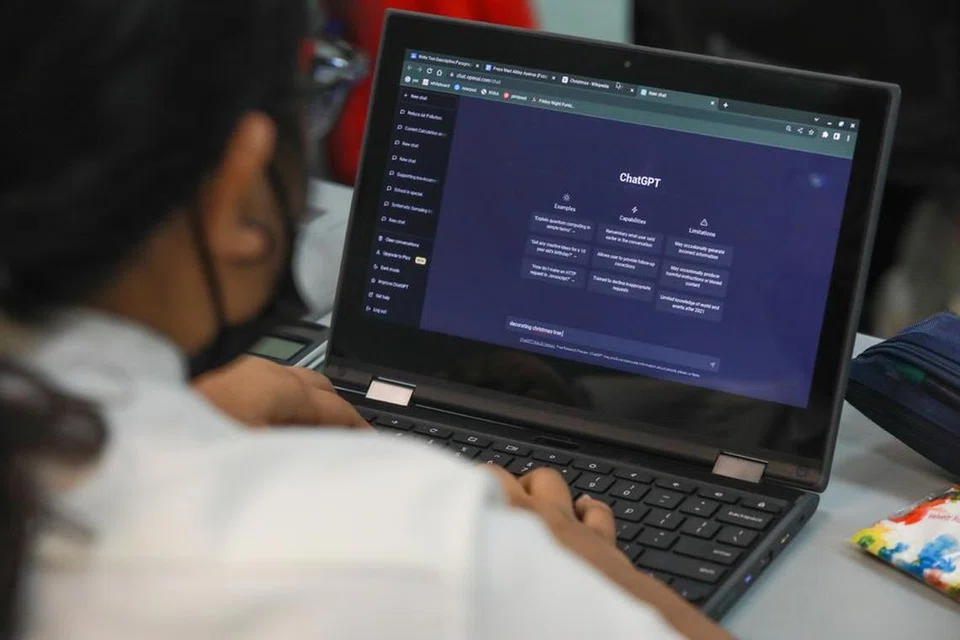How quickly new technologies are adopted across the entire economy is important when entering a new era driven by Artificial Intelligence or AI, said Prime Minister Lawrence Wong.
Past technological changes that came with the rise of computers and the internet created disruption, but also new opportunities like higher-skilled and better-paying jobs.
Therefore, the Government will help all enterprises, especially small and medium-sized enterprises (SMEs), harness AI effectively and use it to sharpen their competitive edge, he said on Aug 17 in his National Day Rally speech.
He acknowledged that many people worry about the technological disruptions caused by AI that may replace entire jobs. But he assured Singaporeans that the Government will make sure workers benefit from the shift.
Even as the country embraces AI, the Government will not lose sight of its key priority to ensure citizens have jobs, and will work closely with unions to redesign jobs and help workers, he said.
“Singaporeans will always be at the centre of everything we do. So, we won’t just rush headlong to adopt new technology,” he said.
He cited the example of how crane operators at port operator PSA were retrained to remotely supervise and manage multiple cranes and vehicles. This provided a huge boost in productivity, and created safer and higher-paying jobs for workers.

“It’s a win-win for everyone,” he said.
Some SMEs, like dental healthcare group Q&M Dental, use AI to analyse X-rays to help dentists diagnose problems. While the dentist still needs to check the results and decide on the best course of treatment, the analysis by AI makes their work better and faster, he said.
AI is being used in the civil service and has yielded good results, he added.
In the past, officers in call centres run by government agencies had to manually write down a summary of each conversation to keep a proper record.
Since March, the Central Provident Fund Board has been using AI to transcribe calls and generate summaries. This allows officers to focus on what matters most, which is to help members of the public, PM Wong said.

Tuas Port, which is set to be fully completed in the 2040s, is also highly automated with containers at the port being transported around the facility in unmanned driverless vehicles.
The Government is studying how to similarly automate baggage handling and other airside operations at Changi Airport.
“The real game changer lies in using AI to raise productivity and create new value through every part of the economy,” PM Wong said, urging a deeper look into the opportunities created by AI.
Global companies are choosing Singapore for opportunities related to technology, he said.
American energy company GE Vernova invested $81.4 million in a repair and service centre in Singapore in 2019. Its global turbine repair service centre uses AI to detect anomalies in turbine components. Human operators are then alerted to do an in-depth diagnosis.
While Singapore may not have been the obvious choice for such a centre, global companies value the nation for its ability to combine technology and human skills.
“That’s how we stay competitive, attract high-quality investments and create good jobs for Singaporeans,” PM Wong said.
“AI is not just for the big players,” he added.
Schools are working to help students become discerning users of technology, amid growing concerns that they may rely too much on AI and take shortcuts. There is unease that students may not make the effort to learn and master the fundamentals, PM Wong said.
Ultimately, the concern is that they may never learn how to think for themselves, he added. He gave an example of a teacher who noticed that his students’ essays improved almost overnight, and later found out they had used AI chatbot ChatGPT to improve their writing.
While schools are working to strengthen their digital skills, in this age of AI, what really matters are human qualities that machines cannot replicate, PM Wong said.
The Government is doing more to develop students’ character, values, empathy and a sense of purpose, he said, preparing them not for exams but for life.
More allied educators and teacher-counsellors are being deployed across schools, and schools are also placing greater emphasis on character and citizenship education, he added.
He said: “This is the key priority for our school leaders and educators – and I hope parents will give them their full support.”
With technology advancing so quickly, some parents may feel the need to start their children learning earlier to help them learn faster and cover more content from a younger age, he noted.
But learning has never been just about packing in more content and knowledge, he said. “It’s about developing the ability to think, to solve problems and to keep learning throughout life.”
This means striking the right balance between protecting young people from potential harms and equipping and empowering them to fully exploit the benefits of technology, PM Wong said.
As children grow older, they will need to navigate the digital world with confidence, he said. Singapore must help them build “digital resilience” so they understand the risks and gain the skills and know-how, and learn to use technology safely and effectively, he added.
In schools, teachers play an important role in teaching students about cyber wellness and instilling good digital habits but more importantly, they help students become discerning and responsible users of technology, he said.
“That means not to blindly trust everything the internet or AI says. But to question, reflect and form their own judgments.”
PM Wong said the teacher who realised his students had used ChatGPT could have banned the chatbot outright but instead turned it into a learning opportunity. The teacher got the class to read and discuss the AI-generated essays, and challenged them to not just accept what the chatbot had given them but to critique it and find ways to make it better.
PM Wong said: “That’s the kind of teaching no AI can ever replace.”
Efforts are also under way to strengthen digital skills of students at the tertiary level, he said, not just for those studying computer science or engineering but for all disciplines.
He said: “In the past, digital skills meant knowing how to use a word processor or a spreadsheet. Now we are teaching students to build and use AI models – to generate ideas and solve problems in their field.
“This way, they will be better equipped for a world where technology is embedded in every profession.”


